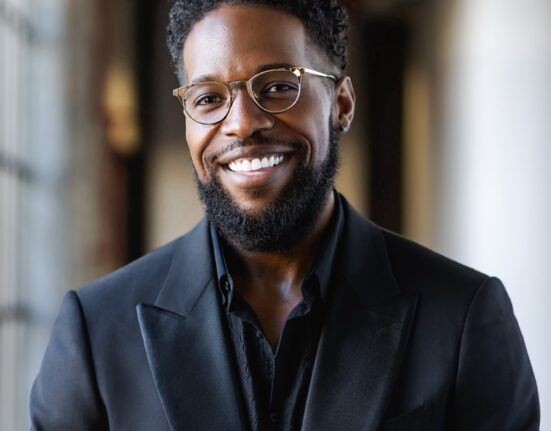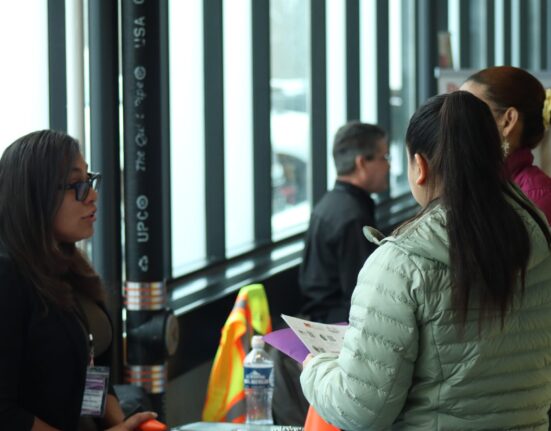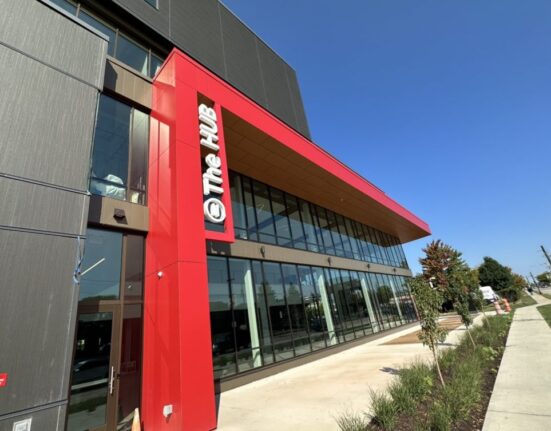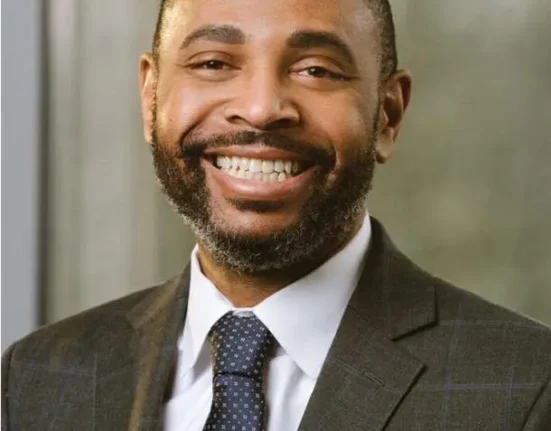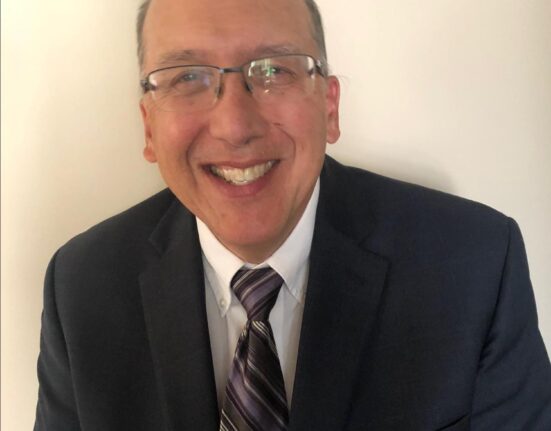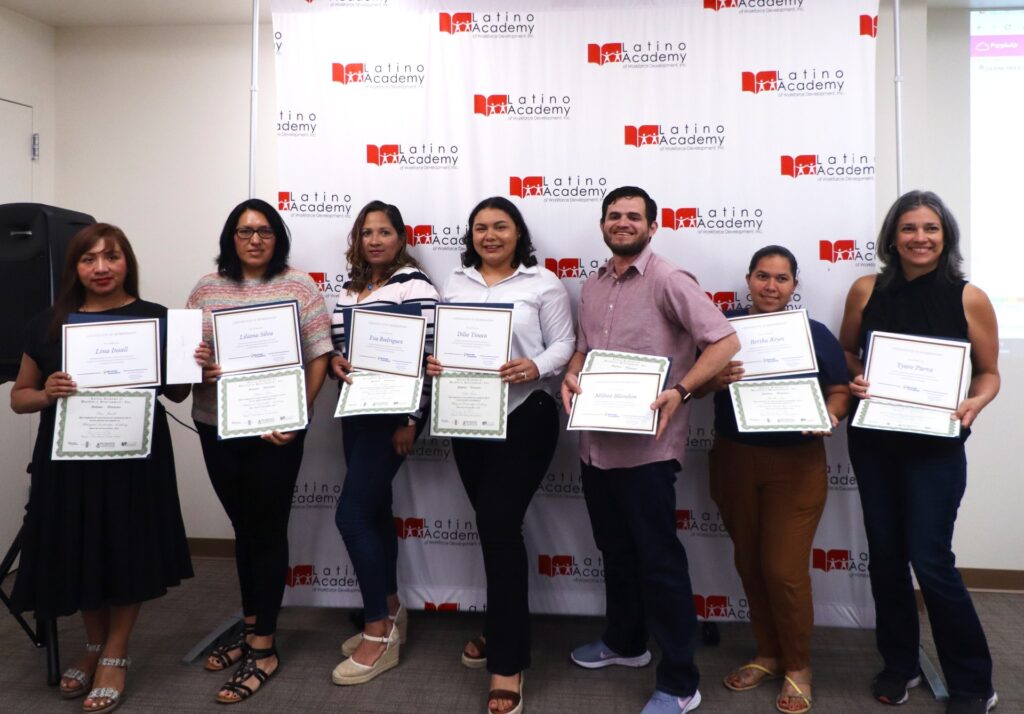
The effects of climate change and air quality were explored last week at the Latino Academy Workforce Development as members of its Bilingual Leadership Academy graduated from its environmental justice program.
The class graduated with nine members as they shared with attendees what they had learned and how the community can get involved. The program was funded by the EPA’s environmental justice program that aims to empower Latino residents living in places with high pollution and learn about how to measure air quality in their respective neighborhoods. The class observed the effects of air quality for residents in South Madison and Fitchburg since April 13. Sustain Dane collaborated with the Latino Academy for the program.
“The air quality is not the same throughout Madison, it’s not the same throughout Dane County and areas where members of our community have higher levels of pollutants and are more affected,” Claire Alexa, executive director of Sustain Dane, said.
Students took to the podium to speak on their findings on how air quality affects the health of them and their communities. Largely the group were able to look at their own efforts and reflect on how they could make a change. Most students installed air quality monitors in their home, given the current pressing issue of air quality in Madison over the past month, and went out of their way to educate their communities on the importance of combating pollution to improve the quality of air in their neighborhoods.
The cohort learned about the outward effects that poor air quality can have and related it to their time in each of their home countries. Students like Milton Blandon juxtaposed efforts in the U.S. to efforts in his home country of Nicaragua.
Blandon, who practiced medicine in Nicaragua, felt as if the current air quality in Madison is near the same in his home country. He noticed that there were at least strong local and nationwide efforts here compared to Nicaragua. Recycling efforts are more frequent here and water is constantly treated — in Nicaragua those same efforts exist but are infrequent, according to Blandon. Regardless of the status of pollution, he urges that fixing the issue is up to the people.
“We can make the change. We need to come together — all of us,” Blandon said. “The authorities, the government, are just the tip of the iceberg.”
Blandon, like the other students, sees governmental efforts as strong, but the change will only happen as a collective.
After each student shared their findings with attendees, they focused on what they could do as individuals. Again comparing it to their respective home countries, the group noted that waste and plastics litter where they come from, but they see it happen here too. Students are now more observant of their consuming choices in an effort to reduce their waste.
Students were given a surprise after they received their diplomas. Each was given a $1,000 stipend to continue efforts in climate justice and advocate for change in their own neighborhoods.

